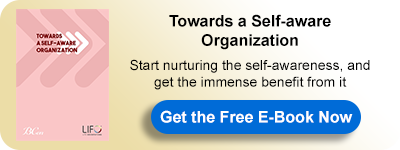Set The Scope to Better Understand Yourself and Your Team
“There’s no cure and no improving of the world that doesn’t begin with the individual himself”
– Carl Jung
Whenever somebody consistently mishandles a given situation that is a sure sign of a blind spot. In a lower reaches of an organization, such problem can easily be dismissed as “quarks”. But at higher levels these problems are magnified in consequence and visibility, the adverse effects matter not just to the person who has them, but to the group as a whole.
In a study of forty two otherwise highly successful executives by Kaplan cited in (Goleman 1998:77), those studied ranged from department heads to CEOs, finding suggests that those with “blind spots” or those who lacked accurate self awareness have the under listed characteristics:
- Blind ambition: Has to win or appear “right” at all costs; competes instead of cooperates; exaggerates his or her own value and contribution; is boastful and arrogant; sees people in black-and-white terms as allies or enemies
- Unrealistic goals: Sets overly ambitions, unattainable goals for the group or organization; is unrealistic about what it takes to get jobs done
- Relentless striving: Compulsively hardworking at the expense of all else in life; runs on empty; is vulnerable to burnout
- Drives others: Pushes other people too hard, burning them out, micromanages and takes over instead of delegating; comes across as abrasive or ruthless and insensitive to the emotional harm to others
- Power hungry: Seeks power for his or her own interests, rather than the organization’s, pushes a personal agenda regardless of other perspectives; is exploitative
- Insatiable need for recognition: Addicted to glory; takes credit for others’ efforts and puts blame on them for mistakes; sacrifices follow-through in pursuits of the next victory
- Need to seem perfect: Enraged by or rejects criticism, even if realistic; blames others for his or her failures; cannot admit mistakes or personal weaknesses*
These are some signs of low self awareness that you can monitor in yourself or within the the team members, which definitely will not be easy for you, neither for them, to recognize, or admit. That’s why you should build a growth and open mindset within the team to be able, as humans, to deal with these unpleasantness.
*Atuma Okpara & Agwu M. Edwin: SELF AWARENESS AND ORGANIZATIONAL PERFORMANCE IN THE NIGERIAN BANKING SECTOR. European Journal of Research and Reflection in Management Science, Vol. 3 No. 1, 2015.
For more about this topic, download our latest book “Towards a Self-aware Organization” for FREE:

